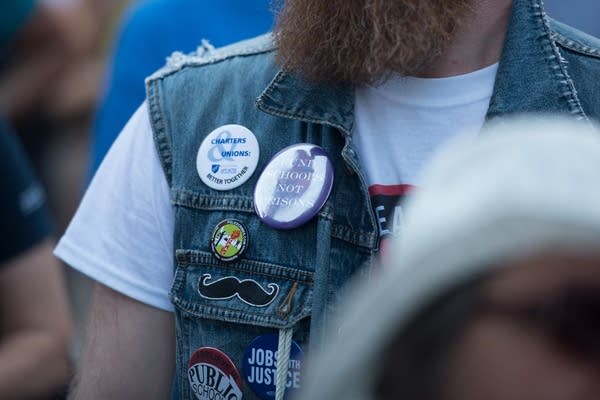Survey: Americans say unions good for U.S. but split on required dues

Teachers join Neighborhoods Organizing for Change and other activists in this July 2016 photograph.
Angela Jimenez for MPR News 2016
Go Deeper.
Create an account or log in to save stories.
Like this?
Thanks for liking this story! We have added it to a list of your favorite stories.


